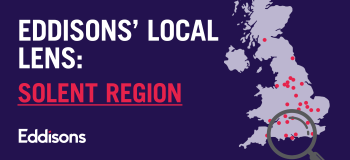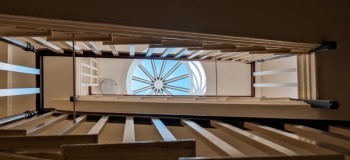10/10/2024
Insights
What is classed as neurodivergent?
The term “neurodivergent” refers to variations in people who express themselves differently compared to what is classed as ‘neurotypical’. Examples of conditions which fall under neurodiversity include ADHD, autism spectrum disorder, dyslexia, or dyspraxia. It is estimated that 1 in 7 people (higher than 15%) of people in the UK are neurodivergent, meaning that their brain functions, processes, and learns information differently.
According to the National Autistic Society, at least 700,000 adults in the UK have autism and, of these, only 15% are in employment. Catherine Bean, co-chair of the ONS Neurodiversity Support group commented that the working world “supports neurotypical people by default, and often neurodivergent people are left to advocate on our own behalf to get reasonable adjustments”. With this in consideration, the future of building design must reflect our diverse workforce, with unique requirements.
What is PAS 6463 in building design?
The British Standards Institution (BSI) published PAS 6463 in October 2022. PAS stands for Publicly Available Specification, and it is used as voluntary guidance on elements of building design such as lighting, layout, acoustics and sensory aspects such as smell and temperature.
PAS 6463 was produced by Jean Hewitt alongside a team of experts. Hewitt is the UK Government's disability and access ambassador for the built environment. Commenting on the state of design and neurodivergence, Hewitt stated that neurodiversity is “one of the biggest areas not currently catered for in building design”, and there is a “rich diversity” in how people “process information and experience the physical environment through the senses”.
In order to advocate for neurodiverse needs in workplace design, Hewitt explains that the priority is to instill a sense of calm and clarity within spaces and the idea of choice and control of the environment.
What is covered in PAS 6463?
PAS 6463 provides guidance on the design of the built environment in a neurodiverse society, with consideration of how to make places more inclusive for everyone. According to BSI, the standards are for the following roles involved in the built environment:
- Designers
- Planners
- Facilities managers
- Project managers
PAS 6463 is aimed primarily at buildings and external spaces intended for public and commercial use.
What are the recommendations from PAS 6463?
The key recommendations from the guide include the following considerations for neurodiverse requirements:
- Using appropriate lighting to guide navigation
- Avoiding sensory overload through unnecessary visual and audible “noise”
- Using logical layouts and signage to aid orientation and familiarity
In addition, the document cites the use of biophilic design, which integrates elements of nature from outdoors to the indoor. Biophilic design has shown to have benefits of relieving stress and anxiety recovery and can help occupants to feel more connected to the natural environment.
What are the benefits of designing for the mind?
There are multiple benefits outlined as a result of designing for the mind through creating sensory inclusive spaces including improved performance of occupants, due to increased productivity and focus. In addition, enhanced spaces may lead to reduced absences as a result of poor mental health, and improved employee and customer retention.
Why is PAS 6463 important for the future of office design?
With increasing awareness of neurodiversity in the workplace, we can take action to improve spaces so they encourage all to feel comfortable in their environments. 65% of people believe that if office design reflected their ideal workplace, this would improve productivity. Our space planning team delivers an end-to-end service from design through to completion to optimise your workspace design. Contact our expert building consultants today for more information on how we can assist.





